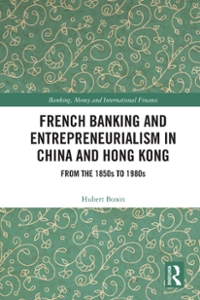Question
course: Caribbean Economic Development SECTION A Instruction: Read the passage below and answer ALL the questions that follow. Importance of creative industries Published: Sunday |
course: Caribbean Economic Development
SECTION A Instruction: Read the passage below and answer ALL the questions that follow. Importance of creative industries Published: Sunday | April 5, 2020 | 12:25 Erika Heslop Martin - Contributor
In 2020, when information is literally glued to our fingertips, technological innovations fill the stratosphere, the economy is reeling. Under the catastrophic effects of the coronavirus pandemic, one has no choice but to be creative - be creative to survive and even better, thrive. Being creative means solving a problem in different ways. It means changing your perspective and your mindset. Being creative means taking risks and ignoring doubt and facing fears, breaking out of your comfort zone and stepping into the unknown. Welcome to the creative industry, also known as the orange economy. The creative industry is extremely important to Jamaica. We are a nation of very creative and talented people, and with the world moving in the direction of technology and innovation, the creative industry will be getting the spotlight. People are now recognising the value of the players in the creative industry. There is intrinsic value in the creative and innovative work across the board. There is a broad variety of creative pursuits that one can look into to make one's mark - from content creation to music, to fine arts, and more. It is imperative that entrepreneurs in the creative industry realized that their work is valuable and that they should be paid for their work. The economy is changing, and the creative industry could be important in the grand scheme of things. The contributors of the creative industry are making a great impact on economic development and sustainability. Also, with the corona crisis happening now, the creative industry will have its place as more businesses are forced to be creative, mobile, or go online. As a result of more layoffs, redundancies, and job losses, there are more inventors, writers, motivational speakers, voice-over talents, editors, graphic designers, seamstresses, and the list goes on. Creative people find solutions to problems, for example: with the scarcity of face masks in Jamaica as we grapple with coronavirus, seamstresses are now creating reusable masks. The challenges are multifold - from the lack of proper funding or financing by financial institutions, struggles of being paid for their creative work, being able to get proper business support and mentorship, and being able to develop and maintain proper accounting records. The Government can put several initiatives in place - they can facilitate to offer start up or business support grants to entrepreneurs in the creative industries under a prescribed criteria. Training on creative industry could be initiated in all high schools and colleges/universities. Career days should be encouraged to highlight careers or professions from the creative industry. Initiating accelerator programmes that enable those in creative industry to develop business plans and ultimately give them the framework to set up and run successful businesses. The Government agencies can also provide more support for the participants of the creative industry by offering training and development programmes in the creative industry. By doing these programmes, the Government will help to spark creative entrepreneurship and ultimately create more jobs and reduce the unemployment rate in Jamaica. The creative industry can contribute to economic growth through the creation of a wide variety of jobs. When there is training and development being offered there will be a shift in the mindset of the participants and this will result in people investing more in this sector. There will be more creative entrepreneurs, more jobs will be created and more money will be circulated which will ultimately add to economic growth. In fact, creative goods and services have had a great decade in international trade: According the United Nations Conference on Trade and Development (UNCTAD), creative goods and services exports grew 134% between 2002 and 2011. The creative goods include: audiovisuals, crafts design, new media, visual and performing arts. The creative services include: advertising, architecture, culture and leisure, research and development. According to the Inter-American Development Bank (IDB), creative goods and services exports reached US$646 billion in 2011 - the opportunities are endless and increasing every year and the Caribbean region should take advantage, as we step into a post COVID-19 world, and carve out a bigger share of the global orange economy pie.
A. With the aid of TWO (2) examples, explain the concept "Creative Industry/sector." (5 marks)
B. Describe TWO (2) ways in which the creative industry/sector has contributed to the development of the Caribbean economies. (5 marks)
C. Highlight TWO (2) challenges which are faced by the Creative Industry/sector in Jamaica and the Caribbean Region. (5 marks)
D. Explain TWO (2) roles that the government can play in the growth of the Creative industry/ sector. (5 marks)
NB..please cite references
Step by Step Solution
There are 3 Steps involved in it
Step: 1

Get Instant Access to Expert-Tailored Solutions
See step-by-step solutions with expert insights and AI powered tools for academic success
Step: 2

Step: 3

Ace Your Homework with AI
Get the answers you need in no time with our AI-driven, step-by-step assistance
Get Started


